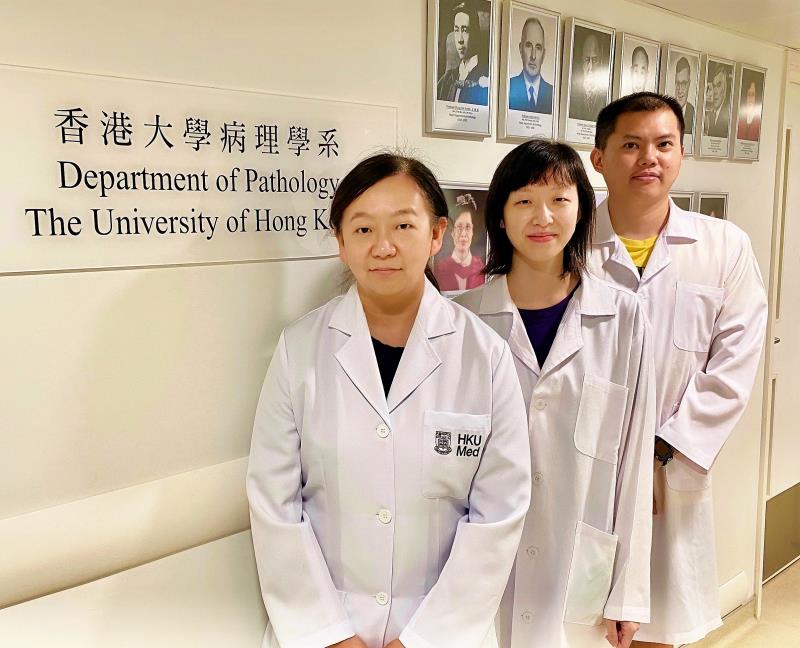EV-NID1 as potential target for HCC detection and treatment




 From left: Dr Judy Yam, Ms Cherlie Yeung, Dr Sze-Keong Tey
From left: Dr Judy Yam, Ms Cherlie Yeung, Dr Sze-Keong TeyNidogen 1-enriched extracellular vesicles (EV-NID1) have demonstrated potential as a noninvasive biomarker for early detection of hepatocellular carcinoma (HCC) and as a target for HCC treatment.
Using a mouse model of HCC, researchers from the University of Hong Kong (HKU) found that NID1 in metastatic HCC–derived EVs facilitated lung colonization of tumour cells by enhancing angiogenesis and pulmonary endothelial permeability, and by activating fibroblasts to secrete tumour necrosis factor receptor 1 (TNFR1). EV-NID1 also augmented HCC cell growth and motility. [Adv Sci 2020, doi: 10.1002/advs.202002157]
Administration of anti‐TNFR1 antibody effectively diminished lung metastasis induced by the metastatic HCC cell–derived EVs in mice.
In HCC patients, serum EV‐NID1 and TNFR1 were found to be positively correlated with tumour stage, indicating their potential as noninvasive biomarkers for early detection of HCC.
“These results also suggest that blockage of the function and signalling pathways of tumour-derived EVs can be applied as a new therapeutic approach for HCC in the future,” concluded investigator Dr Judy Yam of the Department of Pathology, HKU.